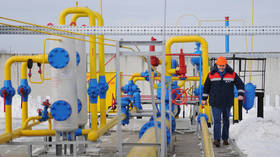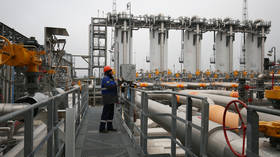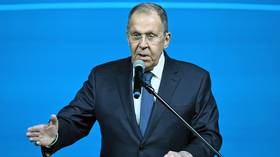Brussels will not extend gas transit contract with Moscow – EU energy chief

The EU has no intention of extending the gas transit contract with Russia via Ukraine when it expires at the end of this year, European Energy Commissioner Kadri Simson told an EU Parliament committee meeting on Thursday.
This comes after Simson met with Ukrainian Energy Minister German Galushchenko on the sidelines of the annual International Energy Agency ministerial meeting in Paris on Wednesday. During the talks with her Ukrainian counterpart, she emphasized that EU member states are currently filling gas storage facilities and working on diversifying their energy supplies.
Galushchenko, meanwhile, said that Ukraine “will cope if the transit stops.” “We have been preparing for the expiration of this contract for two years now. Our focus is on diversifying supplies and integrating Ukraine’s energy markets into the EU.”
Despite multiple EU pledges to completely stop energy imports from Russia and numerous sanctions imposed on the country over the military conflict in Ukraine, Russian energy giant Gazprom has continued to send gas to the bloc under a five-year agreement reached in 2019.
The transit line through Ukraine and the European arm of TurkStream are the only two remaining conduits for piped Russian gas to reach Central and Western Europe. Ukrainian officials previously explained that the current transit arrangement was maintained due to the gas needs of the Czech Republic, Austria, and Slovakia.
However, a decision not to renew the current transit contract will further reduce the EU’s access to pipeline gas and could augur increased imports of liquefied natural gas – including from Russia. Meanwhile, Ukraine is set to be deprived of billions of dollars in transit fees.
Bloomberg recently reported that the European Commission has conducted a preliminary analysis of potential scenarios resulting from an end to the transit deal, including modeling the capacities of other avenues, such as TurkStream, to help make up for any shortfall. The commission is expected to present its plan to energy ministers at a meeting in Brussels on March 4.
For more stories on economy & finance visit RT's business section












